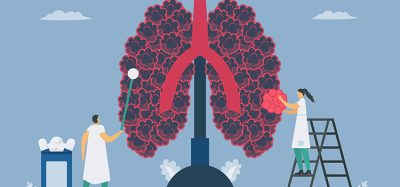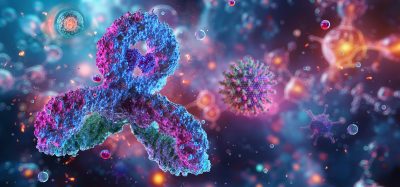How bowel cancer beats treatment – and how AI can stop it
Posted: 2 July 2025 | Drug Target Review | No comments yet
Scientists have developed a new AI-guided tool that predicts how bowel cancer becomes resistant to treatment – which could lead to development of new personalised therapies.


Scientists have developed a new technology that can predict how bowel cancer adapts to treatment – a breakthrough that could lead to more personalised therapies and improved patient outcomes in the future. The approach uses evolutionary biology to forecast how cancer cells evolve when exposed to chemotherapy, helping researchers and clinicians stay one step ahead of drug resistance.
Bowel cancer is the fourth most common cancer in the UK, with around 44,100 new cases diagnosed each year. Chemotherapy has been the mainstay of treatment for decades, yet most late-stage patients ultimately die from drug resistance – where cancer stops responding to treatment.
A machine learning solution to an evolutionary problem
The new technology, developed by researchers from the Institute of Cancer Research (ICR) and Queen Mary University of London, tracks how cancer cells respond to chemotherapy over time. Using mathematical modelling, the team was able to distinguish between resistance caused by rare genetic mutations and resistance driven by non-genetic changes.
Biomarkers are redefining how precision therapies are discovered, validated and delivered.
This exclusive expert-led report reveals how leading teams are using biomarker science to drive faster insights, cleaner data and more targeted treatments – from discovery to diagnostics.
Inside the report:
- How leading organisations are reshaping strategy with biomarker-led approaches
- Better tools for real-time decision-making – turning complex data into faster insights
- Global standardisation and assay sensitivity – what it takes to scale across networks
Discover how biomarker science is addressing the biggest hurdles in drug discovery, translational research and precision medicine – access your free copy today
Just like bacteria evolve resistance to antibiotics, cancer cells can evolve resistance to chemotherapy, making treatment less effective
“Just like bacteria evolve resistance to antibiotics, cancer cells can evolve resistance to chemotherapy, making treatment less effective,” explained Professor Trevor Graham, Professor of Genomics and Evolution and Director of the Centre for Evolution and Cancer at the ICR. “This treatment resistance is a long-standing problem that we are desperate to solve. Cancers may respond well for a while, but sadly then they usually become resistant and the drug stops working.”
EIRAs: a predictive tool for cancer drug design
The team’s method, called EIRAs (Evolutionary Informed Resistance Assays), allows researchers to predict how resistance emerges and to tailor drugs to adapt. With the ability to pinpoint the evolutionary path a tumour has taken, clinicians could use existing drugs more effectively – or develop new ones that target the specific mechanisms of resistance.
“By studying bowel cancer cells over time as we treat them with chemotherapy, we have been able to develop a machine learning technology that can unpick how and when these cells become resistant,” said Professor Graham. “We hope this information will allow us to design new, personalised drugs – ones that target these changes so that the cancer responds to treatment. We also believe we can use the technology to learn how to alter the dose of existing drugs, to keep them working for longer.”
Broad applications and commercial potential
The researchers are now seeking commercial partners to expand the use of EIRAs and have already begun exploring its application in ovarian and breast cancers. A patent for the technology has been submitted, and the ICR’s Centre for Cancer Drug Discovery is expected to play a key role in advancing the research into new treatments.
“As cancer researchers, we are constantly searching for ways to halt cancer’s growth when treatments stop working. This work will help us to identify new targets to tackle cancer once resistance develops,” said Professor Kristian Helin, Chief Executive of the ICR. “The research brings together ideas in machine learning, cancer evolution, and drug discovery. The Institute of Cancer Research has an unrivalled track record of drug discovery, and I look forward to seeing this technology progress, through our Centre for Cancer Drug Discovery and through collaborations with partners, to drive the development of treatments that benefit patients for even longer.”
A lesson from snails to cancer cells
The project’s cross-disciplinary approach also highlights the unexpected benefits of applying evolutionary theory from other biological systems to cancer.
“These advances have come from treating cancer cells’ resistance to chemotherapy as a question about evolution,” said Professor Richard Nichols, Professor of Evolutionary Genetics at Queen Mary University London. “We asked whether their resistance has a genetic basis, building on methods that were first developed to resolve disputes among biologists about the colour patterns of snails. The success of this project shows the value of cross-fertilisation of ideas, sometimes between subject areas that seem distantly related.”
With EIRAs, researchers hope to outmanoeuvre cancer’s evolutionary changes – bringing us closer to a future where treatments remain stronger for longer, and where personalised therapies give patients a better chance of survival.
Related topics
Assays, Cancer research, Chemotherapy, Drug Discovery, Drug Discovery Processes, Drug Targets, Machine learning, Personalised Medicine, Precision Medicine, Therapeutics, Translational Science
Related conditions
Bowel cancer, Cancer
Related organisations
Institute of Cancer Research (ICR), Queen Mary University of London








